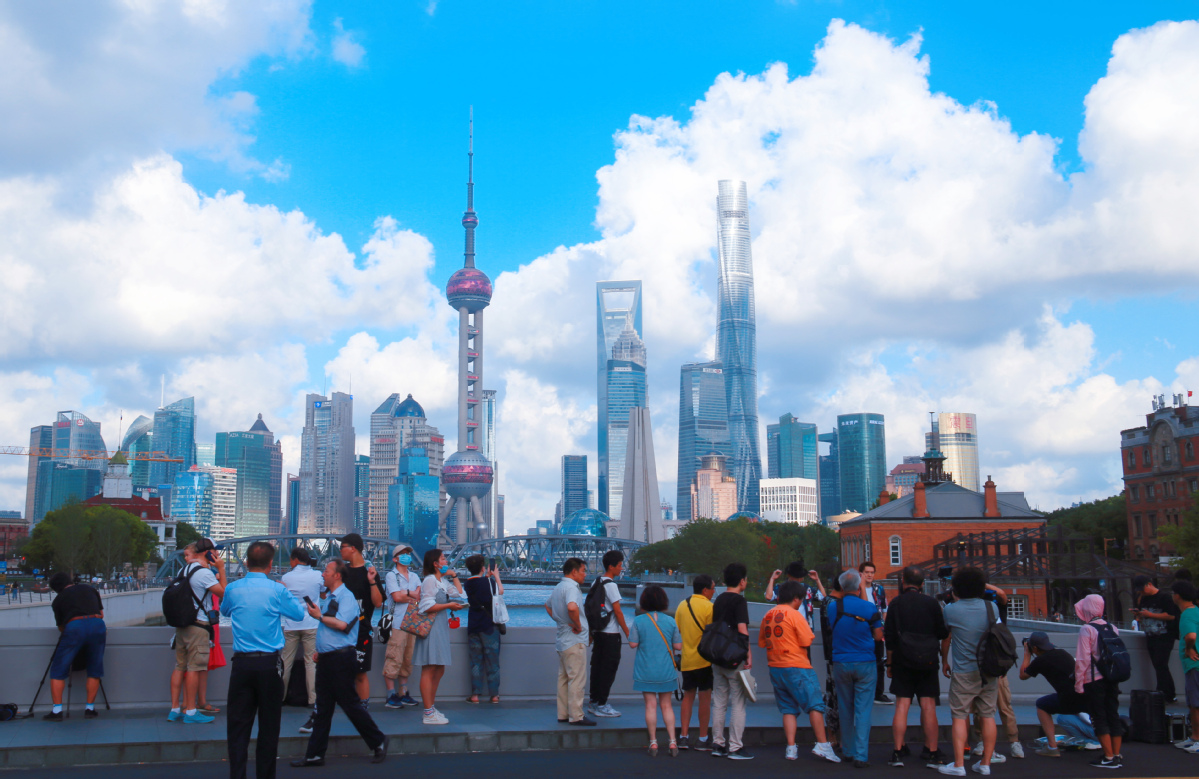Five perspectives on where Chinese economy is heading under Xi's thought


BEIJING - At a time when the global economic landscape is fast-changing, President Xi Jinping's economic thought offers a glimpse into where the world's second-largest economy is heading in the future.
Xi Jinping Thought on Socialist Economy with Chinese Characteristics for a New Era, formally unveiled in 2017, is based on the new development philosophy Xi proposed and has guided the country's economic practices over the years.
A look into Xi's economic thought may help China watchers better understand the goals of China's development and how the country prepares to achieve them.
BETTER LIFE
To understand the objectives of China's economic governance, one must understand the phrase "principal contradiction."
Concerning the dominant issues of overall significance in the society, the principal contradiction in China has evolved over time. How to resolve the issues often influences government policymaking.
"As socialism with Chinese characteristics has entered a new era, the principal contradiction facing Chinese society has evolved. What we now face is the contradiction between unbalanced and inadequate development and the people's ever-growing needs for a better life," Xi, general secretary of the Communist Party of China (CPC) Central Committee, told the 19th CPC National Congress in 2017.
To improve lives, Xi has been championing a people-centered development philosophy and leading reforms in all areas of public concern, including education, healthcare, and social security.
To meet people's growing needs for high-quality products and services, Xi proposed the "supply-side structural reform," which translated into industry-specific policies for high-quality development.
"Seeking happiness for the Chinese people is the original aspiration for the CPC. We should never forget our original aspiration and always take the people's longing for a better life as our goal," he said.
REAL ECONOMY
China's real economy has seen more support under the guidance of Xi's economic thought.
"The real sector is the foundation of a country's economy and the source of wealth. Advanced manufacturing is a key to the real economy, and development should never deviate from the real sector toward the virtual one," he said while visiting a manufacturing firm in 2018.
Under Xi's leadership, China has seen a nationwide deleveraging campaign, reducing the mounting debt of local governments, and taking resolute measures to curb housing speculation.
Financial resources have flowed into industries, including agriculture and manufacturing, while state-of-the-art technologies such as artificial intelligence and 5G are encouraged to reinvent the industrial sector.
"We must pursue genuine rather than inflated economic growth. In other words, we want efficient, high-quality, and sustainable growth," Xi said.
EFFECTIVE GOVERNANCE
Xi's economic thought has shed light on a dilemma facing all policymakers globally: dealing with the relationship between the government and the market.
In a pivotal CPC meeting presided over by Xi in 2013, China acknowledged the market's "decisive" role in allocating resources, changing tone from the "basic" role it has played since 1992.
In the meantime, the government should play its role better, the meeting decided. It added that the core of China's economic system reform is to handle the relationship between the government and the market appropriately.
The "invisible hand" and the "visible hand" have since generated more synergy in boosting growth. Authorities nationwide stepped up cutting administrative red tape and minimized direct intervention in market activities. The government plays an active role where needed, helping the country withstand external shocks and creating a sound business environment.
"Developing the market economy under socialist conditions is a remarkable CPC invention," Xi said.
"One of the crucial factors for China's economic success is we have brought into play the advantages of both the market economy and the socialist system," he said.
HARMONIOUS DEVELOPMENT
The development approach China champions under Xi's thought takes harmony and coordination into account.
Domestically, this approach stresses synchronized development across regions, optimizing resource allocation, and closing economic disparities. China has rolled out regional development plans nationwide, including the Beijing-Tianjin-Hebei region, the Yangtze River Delta, and the Guangdong-Hong Kong-Macao Greater Bay Area.
Globally, China upholds multilateralism and stresses cooperation to address common worldwide challenges, including climate change and the pandemic fight.
Even broader, Xi's economic thought considers the shared benefits for humans and nature. To foster a new man-nature relationship where both can prosper and live in harmony, China made ambitious pledges for a greener future, including peaking carbon dioxide emissions before 2030 and achieving carbon neutrality before 2060.
"Coordination is both a tool and an end for development," Xi wrote in an article in Qiushi Journal in 2019.
"At the same time, it is a standard and a yardstick for evaluating development," he said.
COMMON PROSPERITY
Entering 2021, a buzz term guiding the country's economic policies is "common prosperity."
"Common prosperity is the essential requirement of socialism and an important feature of Chinese modernization," Xi said.
Rather than "robbing the rich to help the poor," the phrase refers to affluence shared by everyone - physically and intellectually.
"When we talk about common prosperity, we mean prosperity for everyone. It means that the people are rich in their material and spiritual life simultaneously. It's neither prosperity for only a few people nor egalitarianism," Xi said.
Pursuing this goal, China vowed to deal with the relationship between efficiency and fairness and make basic institutional arrangements for income distribution.
The vision for shared prosperity goes beyond affluence for the Chinese. On various international occasions, Xi called for building "a community with a shared future for humanity" and a win-win for all.
"On the road to the well-being of all humanity, no country or nation should be left behind," he said.
- Surging flu cases drive up demand for drug
- Nanchang funds 19 free funeral venues after tragedy
- Massive ice sculpture replicates CNS?Liaoning aircraft carrier
- China to enhance to improve carbon footprint
- Experts advocate vaccinations to combat flu cases
- Singer Lu Han apologizes for inappropriate behavior





































